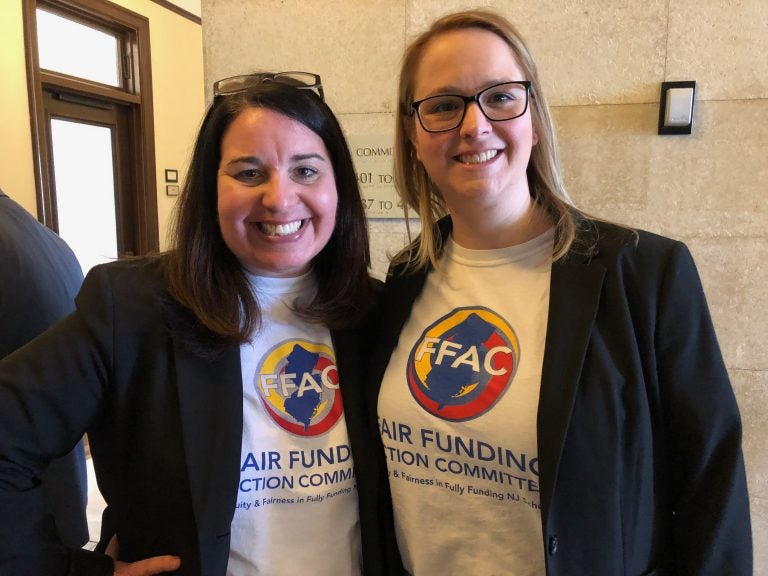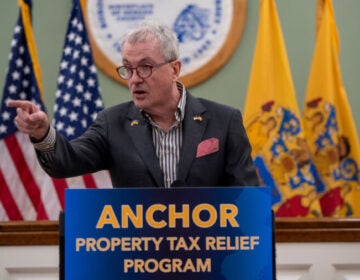N.J. school funding dominates first public budget hearing in Trenton
As New Jersey lawmakers delve into particulars of the budget plan, proponents and opponents of changes in school funding argue their positions.

Jen Cavallaro-Fromm and Andrea Katz, advocates in New Jersey, attended the first public budget hearing of the year in Trenton on Wednesday. (Joe Hernandez/WHYY)
Advocates on either side of New Jersey’s school funding debate made their views clear in Trenton Wednesday, as legislators kicked off their first round of public hearings on the next fiscal year’s budget.
Although the meetings are open to anyone who wants to speak, testimony was dominated by those weighing in on recent changes to the state’s school funding formula, which reduced aid to some districts and increased it to others.
“The biggest question I ask myself is why I should stay in a community that is going to die because of these cuts,” said Courtney Matash, who teaches in the North Warren School District and lives in Blairstown.
Matash said school officials warned her after Thanksgiving that she might not have a job next year as a result of cuts in state aid. She said she had planned to plant roots in Blairstown and start a family there, but now she and her husband are considering moving away.
“I love my home and don’t want to be forced to find another,” Matash said.
Others praised the Legislature for backing a measure that reshaped the school funding formula last year, sending more money to some districts that had been underfunded for years while limiting aid to those that had received more.
Jen Cavallaro-Fromm, vice president of the Kingsway Regional Board of Education, said additional funding meant concrete changes for district students, including her two children.
“Over the past two years, Kingsway has hired 33 new district positions. We have lowered our class sizes to the mid-20s. We have reduced the number of kids forced to take study halls. And we purchased books for the first time in years,” she said.
In this year’s budget proposal, Gov. Phil Murphy suggested allotting an additional $200 million in education funding, bringing total state aid for schools to $8.7 billion.
Still, some districts fear that a modest hike in overall school aid may not make up for cuts in individual districts.
Chuck Sampson, superintendent of the Freehold Regional High School District, said the district could see a $25 million reduction in state aid over the next six years.
“Opportunities for students will evaporate, programs will be cut and reduced, and we will lay off dozens of staff members,” he said.
WHYY is your source for fact-based, in-depth journalism and information. As a nonprofit organization, we rely on financial support from readers like you. Please give today.




